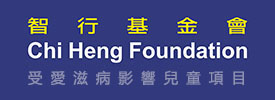Several ways to help AIDS orphans out
(2005/01/14 Shanghai Daily)
Tian yi
Finding the best approach to save children orphaned by AIDS has become a matter of urgency for China.
The united Nations Children’s Fund says by the end of 2001, 76,000 children were AIDS orphans. That number has increased considerably as more HIV carriers die from the disease.
The majority of the country’s AIDS orphans are in rural areas. These children, who have lost one or both parents to AIDS and are healthy themselves, live an extremely poor life and often have to drop out of school. They not only have to bear the physical burden of doing housework, but also are under intense psychological stress as they watch their parents die in a painful and undignified way. Some are so tormented by anguish and depression that they become self-destructive or potentially disruptive to society.
In view of this, finding a way to help these children is not just philanthropy, but also a long-term benefit to society.
Many villages in Henan Province, the most severely AIDS-stricken area due to unsterilized blood collection in the early 1990s, have turned to specially built orphanages.
However, AIDS experts, including Doctor Gao Yaojie, the first person to promote AIDS awareness in the nation’s vast rural areas, say the orphanages may not be a good solution.
They point out that while the practice is easy to implement and manage on the government’s part, it does little good to the children. Orphanages make it harder for children to merge into society as they mature.
Two reasons are frequently cited.
Firstly, being raised and educated in an isolated institution deprives children of opportunities to socialize.
What’s worse, it puts a label on the children and associates them with the shadow of disease for the rest of their lives.
A better solution lies in integration rather than isolation.
Dr Gao advocates foster care – to take the AIDS orphan out of stricken villages and place him or her in a foster family’s care. Over the past four years, she has placed six orphans from Henan Province with different families in Shandong Province. She says all of them have adapted and get along well with other children.
According to Yang Tuan, a researcher with the Chinese Academy of Social Sciences, foster care helps children get involved in normal life and form intimate relationships with family members.
“They can experience not only family love, but also the frustrations and difficulties of life in a household, just like other children,” Yang says.
But the prospects for adopting this method are not optimistic. Due to a lack of AIDS knowledge and deep-rooted discrimination, many neighborhoods and schools will fight the introduction of a child, whose parents died from AIDS related complications, into their community.
Early last year four AIDS orphans from Shaodian Village in Henan were supposed to attend school in Chongqing Municipality. They have been sent back to Henan as their identities were exposed in the media. Huang Wei, the sponsor of the project, has admitted bitterly that he underestimated the social pressure caused by ignorance and indifference.
There are other problems. Local governments are often unwilling to cooperate, thereby complicating bureaucratic procedures. To make matters worse, the specialized human resources required for assessments and follow-up work before and after the adoption are often unavailable.
The realities of foster care mean progressive ideas such as Gao’s simply cannot occur on a large scale.
Aware of the problems, some people and organizations have tabled another approach – allow AIDS orphans to grow up locally and attend school with children not affected by the disease.
A prime example is the Orphans Education Project conducted by the Chi Heng Foundation, a Hong Kong-based non-profit organization. It has helped more than 1,200 AIDS orphans in Henan.
The project is carried out in a systematic and scalable way in order to maximize the impact. It takes care of all AIDS orphans in one village before moving into another.
Apart from providing food, shelter and schooling, the project has three specially designed programs.
The summer Camp Program aims at addressing the psychological needs of traumatized children, helping them build confidence or eliminating hostility against the outside world.
The study Tour helps those who show the potential to enter university further their education.
The skill Training Program introduces jobs to older children and teaches them how to earn a living.
Chi Heng’s project is considered successful, since it takes advantage of local resources.
Every child has the right to grow up happy. Let them shine under the sun as every one of us does.



